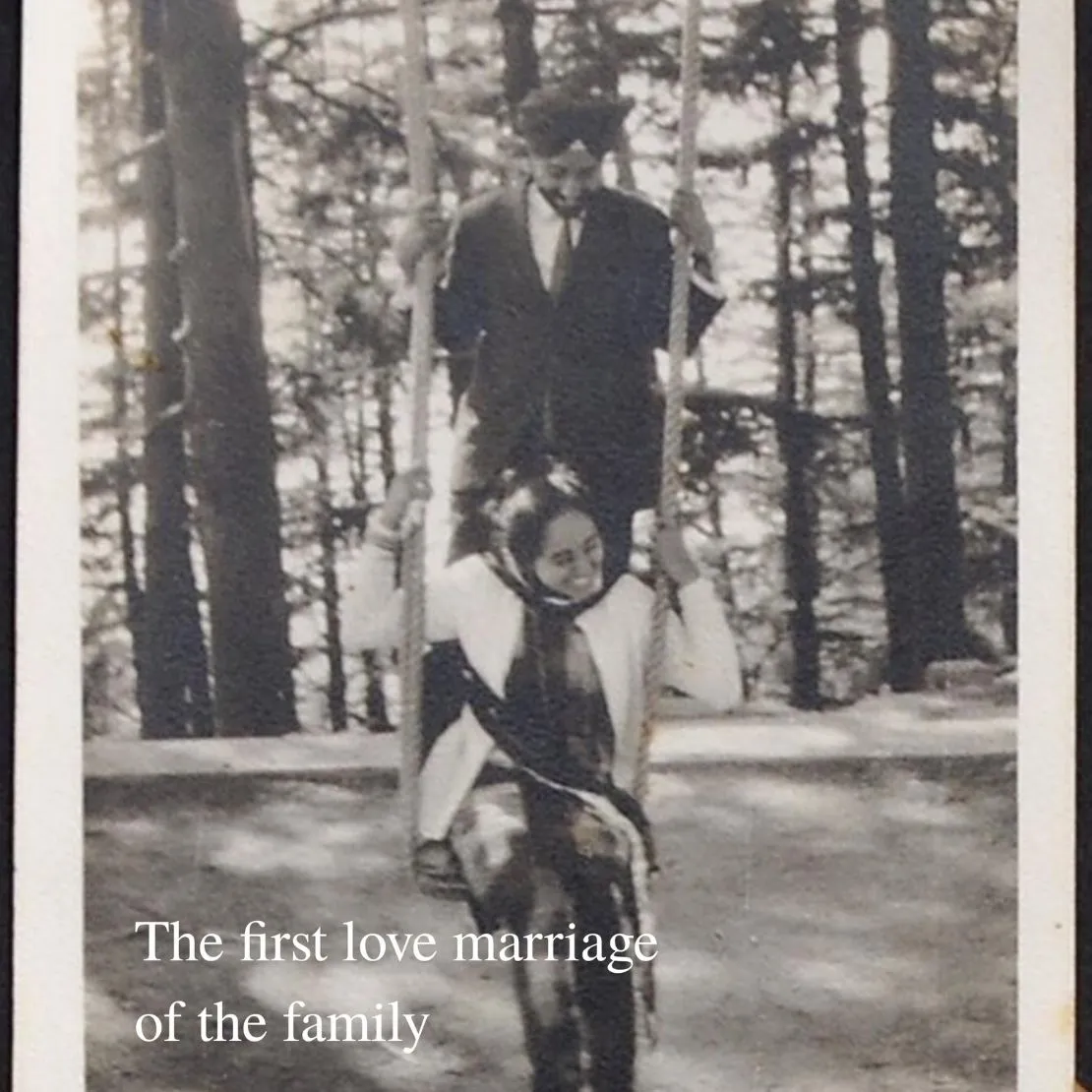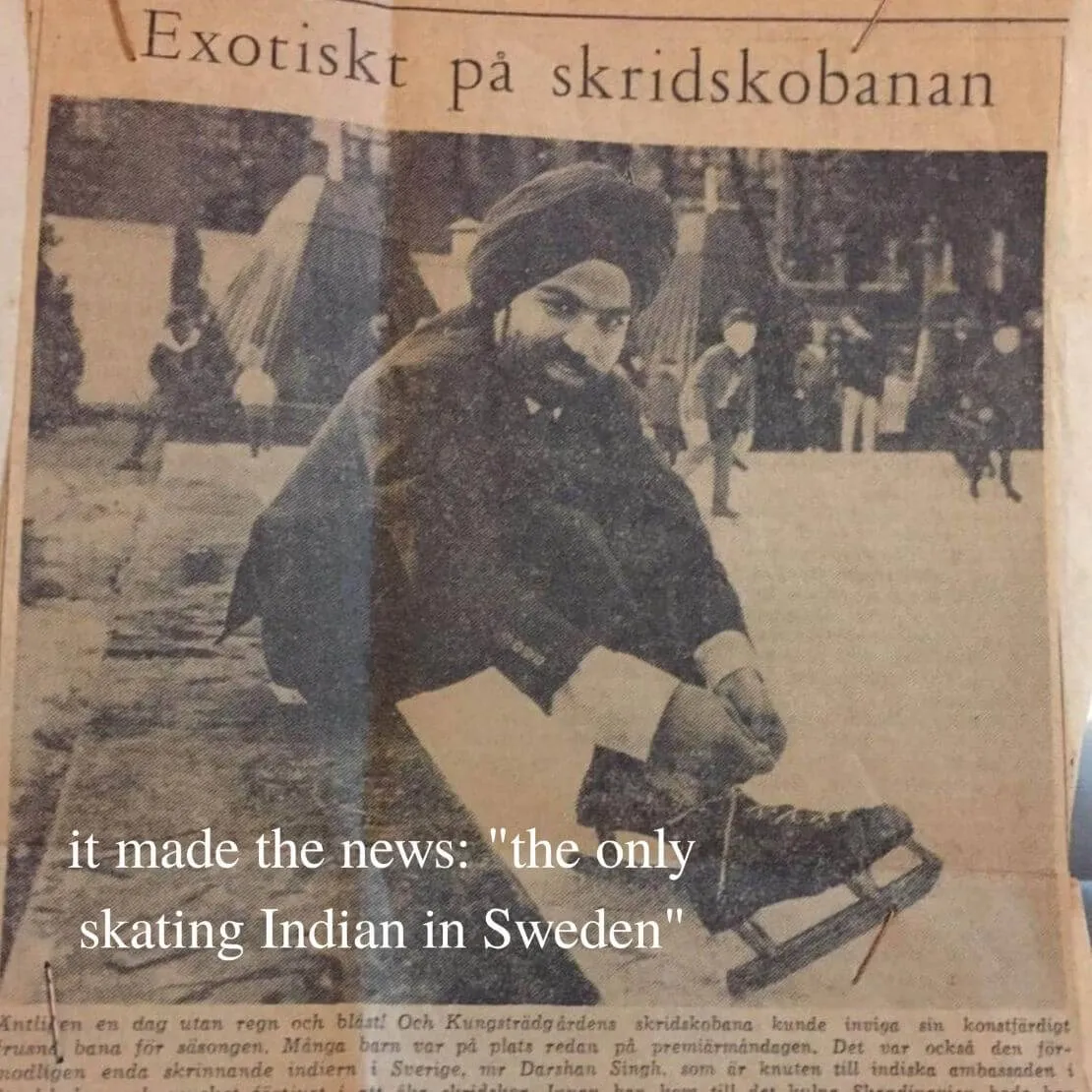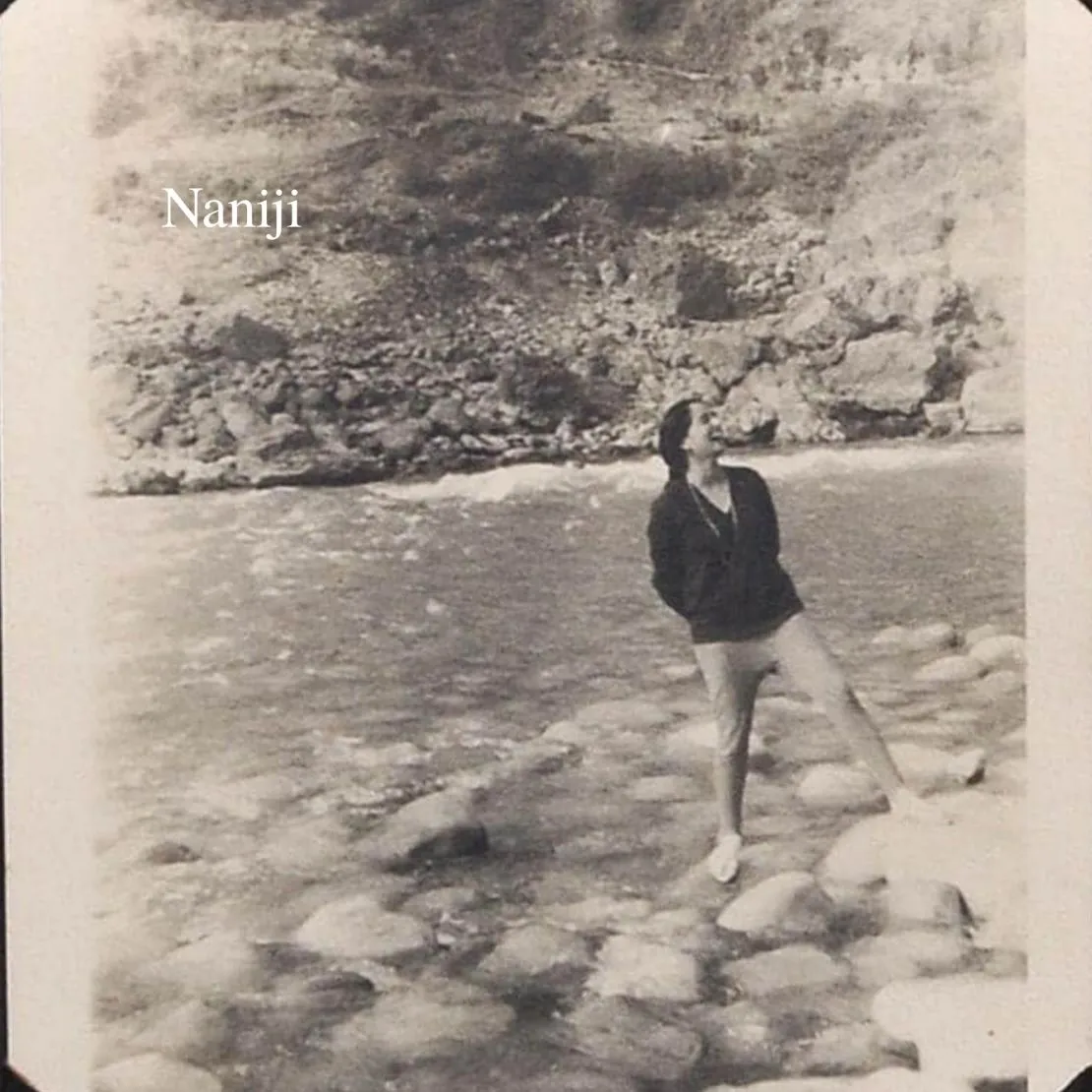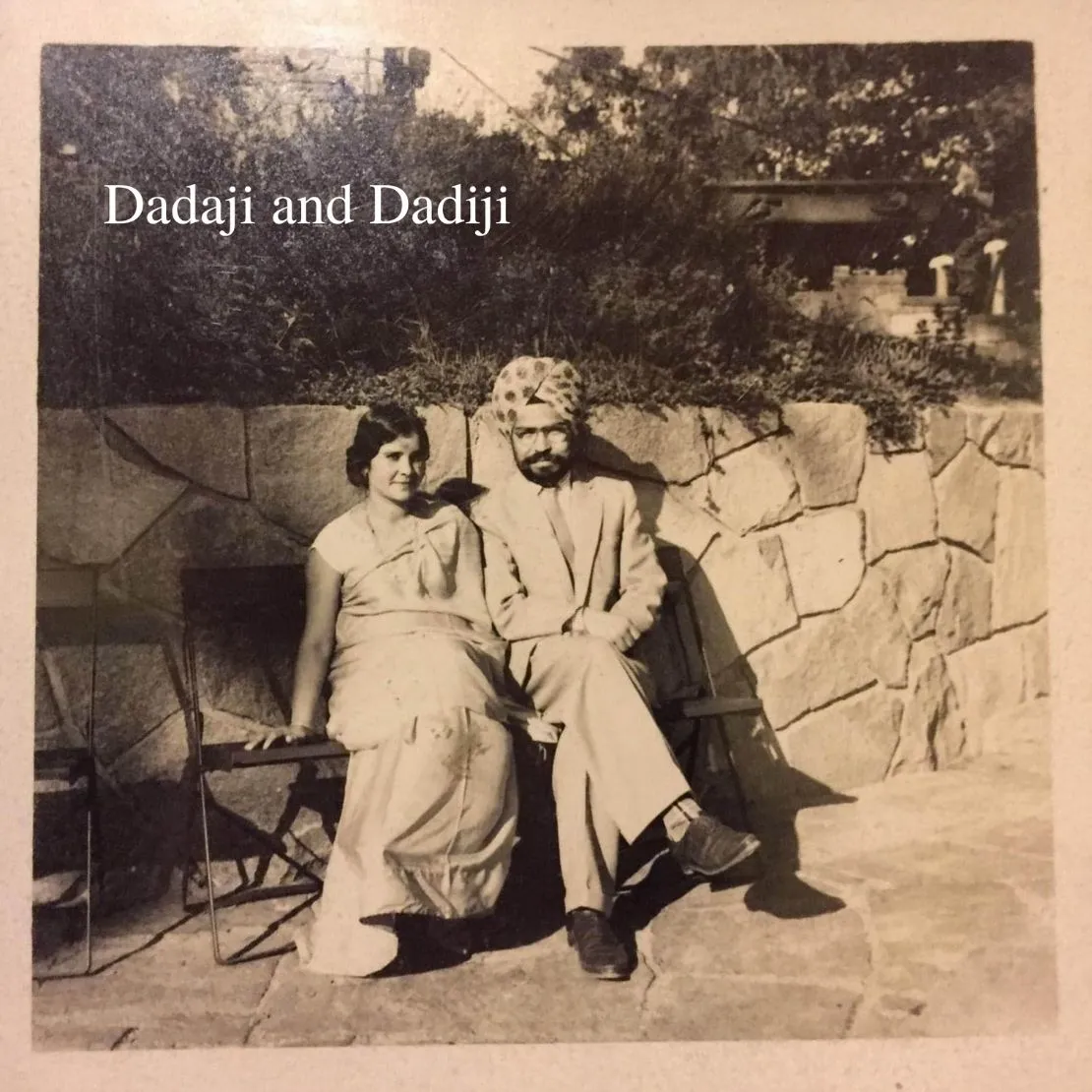The battles I have faced aren’t unique, but they are mine
I look back and I see them, guiding me. I can feel their presence in my bloodlines.
The battle is over now. I have put down my weapons. My wounds are healing. The veil is falling. It is all slowly coming into focus. As my search for belonging continues, I begin to feel it in my bloodlines.
The battles I have faced aren’t unique, but they are mine. As I grow, it is becoming clear that the belonging I have been searching for is within me, in my bloodlines.
I look back and see the generations behind me, the strength and the stories that run through me, in my bloodlines.
I see those that crouched in dusty trucks, hiding for their lives, crossing that new border in 1947, on a journey into the darkness of the unknown. No idea that they would be starting again, refugees in their own land, because of the turban on their heads and arbitrary lines drawn on a scrap of paper. He was only 8. My Nanaji, my mother’s father. His mother grabbed his hand, they ran, fumbled into the truck and ducked their heads. Hiding when army officials passed as they crossed the border into the new country. Crossed that Partition. His father, his brothers and sisters left behind in their old home. They lost each other. For months, thousands scoured the local temple in the new country for family members, day after day. Finally, they heard news, news of lost family members. They reunited on that holy ground, the tears of joy washing away the sorrow. For a few months they remained close to the border, gathering strength and adjusting to the new country. Eventually, like so many others, they were drawn to the economic centre, the beating heart of the country. They started over on the harsh streets of Delhi, guided by strength.

Theirs was the first love marriage of the family. My Nanaji and Naniji, my mother’s parents. She was the eldest daughter of a dairy farmer, born in a small village, brought up by her grandparents and deeply loved. He was an engineer, who had started over after the partition, thanks to the rupees he had saved from those harsh streets of Delhi to send himself to school. His mother didn’t want him marrying her. They married anyway. They have shared their lives with each other. Fifty-five years. Three children, three grandchildren, a business. At 8 am every morning she returns from the gym to have coffee with him before work and at 9 pm every night they have elaichi chai and a rusk and catch up on the day’s happenings and gossip.
I see those that travelled far from home, voyagers crossing the Arabian Sea. Over 100 family members gathered in 1962 to say goodbye. They traversed Europe in a train, they looked like the great Maharajah they thought they were. He was a diplomat, she was an adventurer. My Dadaji and Dadiji, my father’s parents. They stepped off that train, into a different universe – Sweden in the sixties. They had no friends or family. They could not buy masala spices locally, nothing to make roti, nothing that tasted like home. They cried every day for that first month. But their spirit never faltered. They made lifelong friends and connections. They learnt about local food. It started to taste like home. She joined dance classes and created macramé. She has a glint in her eyes. It sparkles when she laughs. They learnt how to ice skate. It made the news: “The only skating Indian in Sweden”. When their assignment ended, they were sent to a new location. Such an abrupt change again. Again, they started over, they persevered. Hungary, Indonesia, Thailand, finally Australia.

I see him. He too started over so many times. My father. He had the strength in his bloodlines. He has his mother’s glint in his eyes. His eyes sparkle when he laughs. He has seen so much, lived in so many countries, a diplomat’s son. That cruel British boarding school that shaped his teens. It lives on within him. He started over in 1977, in that strange foreign land. He studied, he worked, the strength guiding him. The strange people, the strange food, the strange English that was spoken here, so different from the boarding school. He faced his own battles: the embedded racism in this country showing its face time and time again. He moved to Melbourne in 1989. He became a loving father. A protector, a provider. My first hero.
I see her. They found her a husband in a foreign land. She was still only a child. She started a new life without family and friends. My mother. She was the eldest daughter of a love marriage. An actress in the making. The conflict between progress and cultural norms battling in their family. Sitting on the indoor swing with a friend in 1988. A conversation that changed the course of her life. Her friend convinced her to choose marriage over an acting career. Melbourne, Australia, June 1989. She was lonely, confused and still growing up, in a strange land. He went to work every day and she paced the house. In time she developed her own identity. She was always too progressive, challenging norms and defying the status quo. The first feminist I ever met.

They didn’t just get by, they thrived, they conquered. And now their legacy lives within me. I am forging my own path, but with the strength I have inherited, in my bloodlines.
The battles I have faced aren’t unique, but they are mine. As I grow, it is becoming clear that the belonging I have been searching for is within me, in my bloodlines.
For so long I rejected my story, my culture. I wanted to be an Aussie. Whatever that means. I wanted to belong. I wanted to assimilate. It took hold of me, this desire. I was surrounded by whiteness. It seeped into my skin and left its scars. I added my own. I battled with it, wounding myself in the process, not knowing what I was fighting. Or that I was searching for something.
I grew up unable to articulate the adrift feeling. The strange otherness that I felt, reinforced by their harsh words and that face of racism showing itself repeatedly. The strange otherness I felt in my own culture too. I didn’t belong anywhere. I battled through, finding a false sense of safety where I could. Throwing myself further off course.
But I grew. I channelled that strength within my bloodlines and looked back. I saw them all, holding me, nurturing me, encouraging me onwards. I forged my own path, the eldest daughter of a loving father and a loving mother, an Indian-Australian who is finding her place wherever she is. A sister, a friend, a partner, an engineer, an artist, an improviser, a cook, a strong woman who carries both cultures, in her bloodlines.

I am still growing and healing from it now. It is a slow and painful process, unlearning what was so deeply ingrained in me. The way I view the world, the way I view myself. It is the story of so many second-generation migrants, the need to question and challenge the entrenched desire for assimilation.
The learning that shines the brightest for me is the strength in my bloodlines. I am finding grounding in my culture. I am finding my lessons in the past. My ancestors are guiding me and the rich culture lives on within me, in my bloodlines. The stories of my people will live on through me.
The battles I have faced aren’t unique, but they are mine. As I grow, it is becoming clear that the belonging I have been searching for is within me. In my bloodlines.
All the images have been provided by the author. The main artwork for the story has been designed by our in-house artist, Sathya Thavendran. To help us open Australia's first South Asian art store, head here.